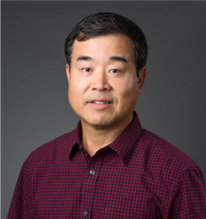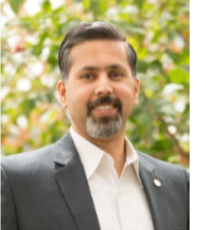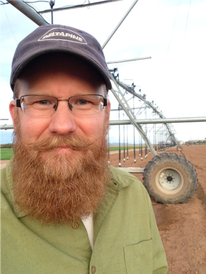OPENING KEYNOTE SPEAKER
Dr. Wonsuk "Daniel" Lee
University of Florida
Title: Sensing systems for specialty crop production in Florida
Dr. Wonsuk "Daniel" Lee is a Professor of the Agricultural and Biological Engineering at the University of Florida in Gainesville, FL, USA. He received his BS and MS degrees in agricultural engineering from the Seoul National University in Korea, and a PhD degree in biological and agricultural engineering from the University of California, Davis. His research interests focus on developing sensing systems for precision agriculture and farm automation. His current research areas include detection of the citrus greening and black spot diseases, immature green citrus fruit detection, apple Marssonina blotch detection, autonomous weeding systems, and detection of strawberry flowers for yield prediction. Dr. Lee’s work has been funded by a variety of extramural institutions, such as the U.S. Dept. of Agriculture and the Florida Strawberry Growers Association. Dr. Lee has authored numerous refereed publications, book chapters and created different kinds of software for sensing systems.
KEYNOTE SPEAKER
Dr. Raj Khosla
Colorado State University
Title: The Future of Farming: Big Data, Analytics, & Precision Agriculture
Prof. Raj Khosla is Robert E. Gardner Award Professor of Precision Agriculture at Colorado State University (CSU). He is the recipient of the Werner Nelson Award for Diagnosis of Yield-Limiting Factors from American Society of Agronomy. In 2015, Dr. Khosla was recognized as the “Precision Ag Educator of the Year”. Previously, in 2012, Dr. Khosla was named the Jefferson Science Fellow by the National Academy of Sciences and was appointed as the Senior Science Advisor on Food Security to the U.S. Department of State. In 2011, he was inducted by NASA to the US “Presidential Advisory Board on Positioning, Navigation and Timing” to work on the US space based GPS policy.
His main research focus has been on “Management of in-field soil and crop spatial variability using innovative technologies (such as Global Positioning Systems or GPS, Geographic Information Systems or GIS, and Remote-sensing) for variable rate precision nutrient management, particularly Nitrogen. He has generated many discoveries in precision agriculture, most widely recognized among them is the innovative technique of quantifying variability of spatially diverse soils using satellite based remote-sensing to create management zones, which is currently being used by farmers in Colorado, across US and in other countries around the world. He currently has projects in multiple countries and is championing efforts to enhance crop input use efficiency, productivity, profitability, and sustainability of large and small scale agricultural production systems. He has co-authored over 300 publications (book chapters, refereed journal articles, extension articles, proceedings, bulletins, reports, popular press articles, digital media, and others). He has been invited globally to over 30 countries.
Dr. Khosla is the Fellow of American Society of Agronomy; Fellow of Soil Science Society of America; Fellow of Soil and Water Conservation Society and Honorary Life Fellow of International Society of Precision Agriculture.
He is the Founder and Past-President of the International Society of Precision Agriculture.
CLOSING KEYNOTE SPEAKER
Dr. Kelly Thorp
USDA - ARS
Title: Remote Sensing and Crop Modeling Technologies for Precision Crop Management
For 19 years, Dr. Thorp has actively pursued research to develop informational technologies to understand cropping system processes, improve management of water and nutrients for crop production, and enhance plant breeding and genetics research. Specific application areas for these information technologies include crop water and nitrogen status assessment, precision agriculture, management of nitrogen fertilizer, irrigation and drainage water management, high-throughput field-based plant phenomics, and development of new bioenergy crops. He received B.S. and M.S. degrees in Agricultural Engineering from the University of Illinois at Urbana-Champaign in 2000 and 2002, and he obtained a Ph.D. in Agricultural Engineering from Iowa State University in 2006. Since then, Dr. Thorp has been employed by the USDA Agricultural Research Service, including a 10-month post-doc at the National Center for Agricultural and the Environment in Ames, Iowa followed by 12 years of service at the Arid-Land Agricultural Research Center in Maricopa, Arizona. Dr. Thorp has published 71 articles in refereed journals. He is an active member of the American Society of Agricultural and Biological Engineers and also the American Society of Agronomy.


